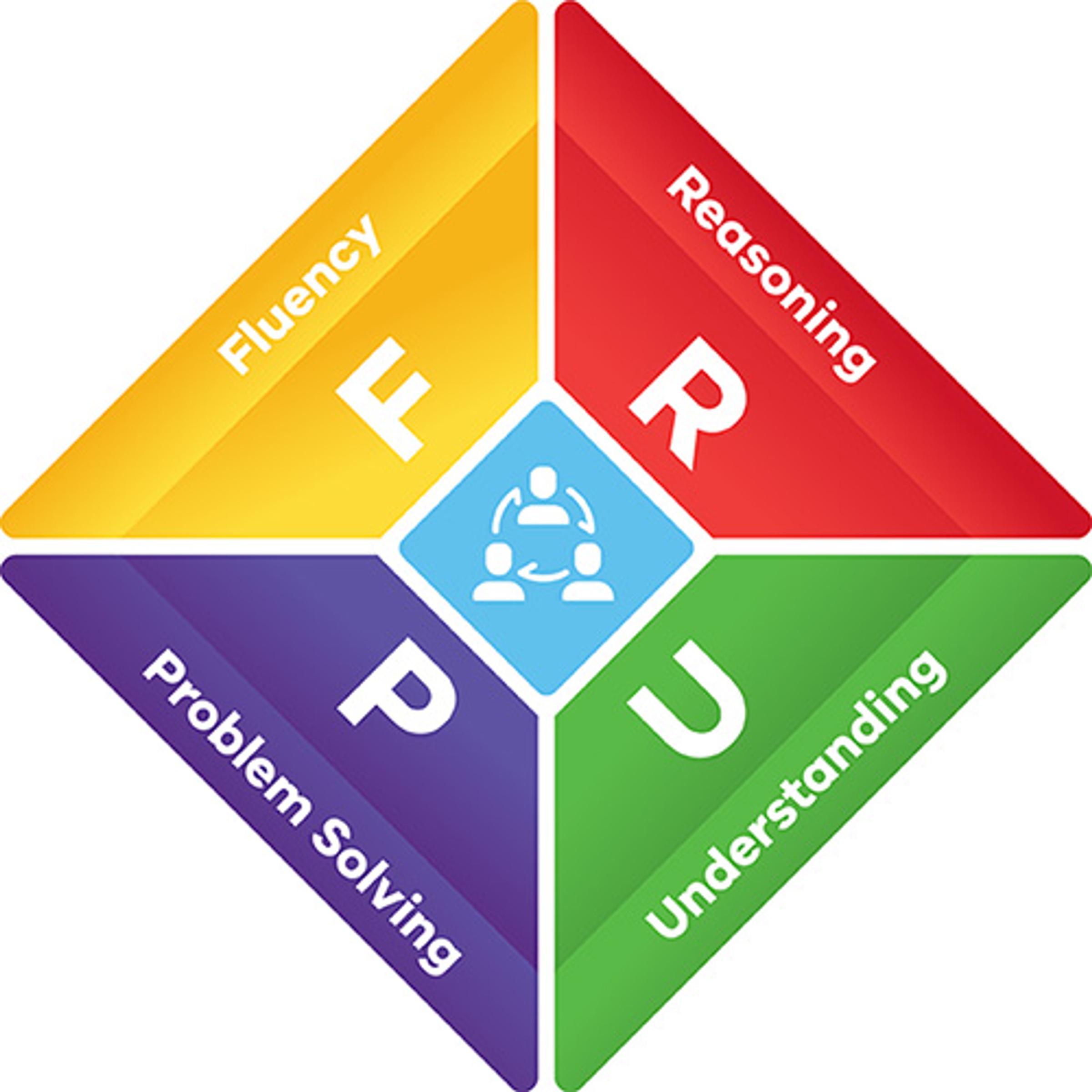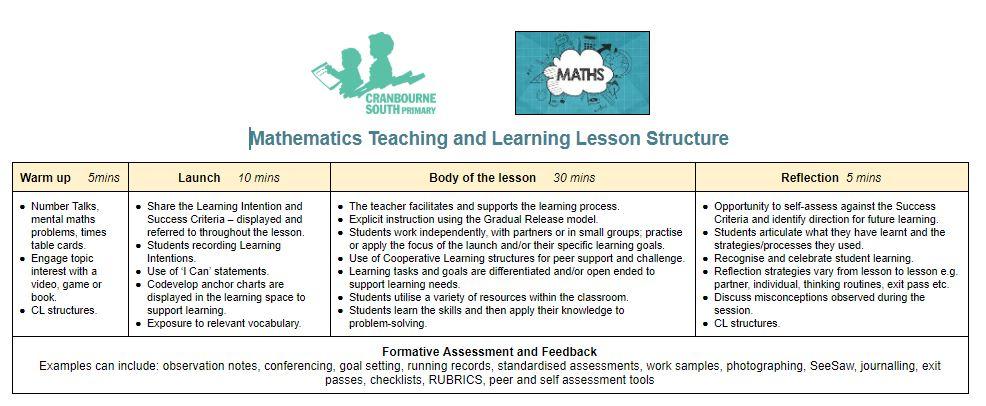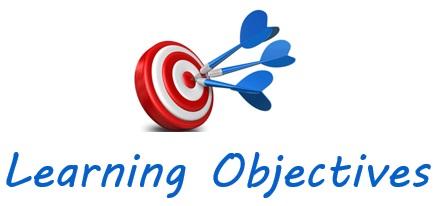Maths @ CSPS

CSPS Instructional Math Lessons
Math lessons are structured in a specific way for best practice. Teacher teams plan a sequence of lessons that include:
Warm-up - This is usually a 5-minute number game. A great way to continually practice number fluency.
Launch - This section of the lesson can be exploratory where students can explore math concepts creating interest around the topic being taught.
Main Lesson - This is where explicit mini-lessons and group work happens to practice the 4 math proficiencies; fluency, reasoning, understanding and problem-solving.
Reflection - An exit slip may be used here to help the teacher gauge student understanding of the topic practised. This may also include cooperative learning and sharing of what students have learned.
At CSPS we have an expectation of at least 3 hours per week of Math instruction to cover all 3 strands of Number and Algebra, Geometry and Measurement and Statistics and Probability.
Assessing Mathematical Skills and Knowledge
Assessment of students skills and knowledge in mathematics is done in a variety of ways to inform teachers of their instruction.
Teachers use:
Pretesting
Post-testing
Conferencing (individual and small group)
Exit slips
Rubrics
Observations and anecdotal notes
Essential Assessments
These different forms of assessment give teachers and students clear learning goals for achievement and growth in math proficiencies.
Individual learning goals and targets motivate students to:
- become more active participants in the learning process
- become independent learners
- identify what is important to their own learning
- achieve their full potential.
Research into the motivation and efficiency of students who set their own learning goals and targets indicates that students have more confidence to take on more challenging tasks, regardless of their ability.
Students tend to achieve more than when working on goals set for them by the teacher, with their motivation to improve and master a task increasing and their self-esteem remaining strong, even in the case of failure.
Ask your child what mathematical goal they are working on!



